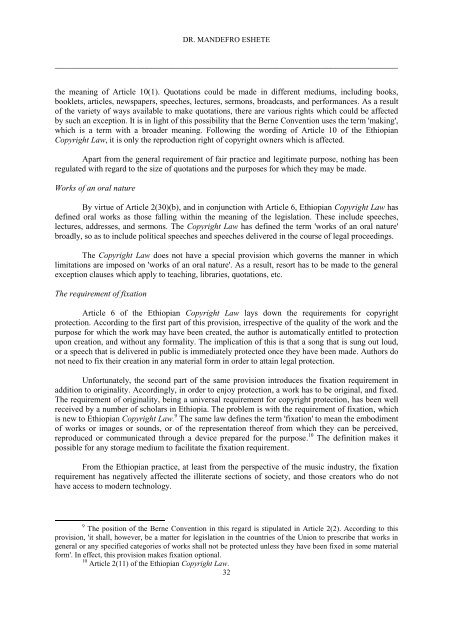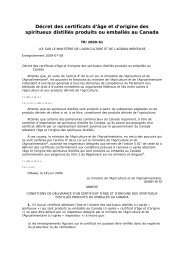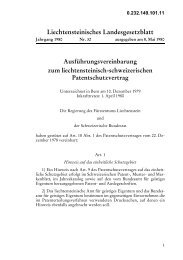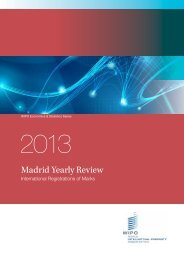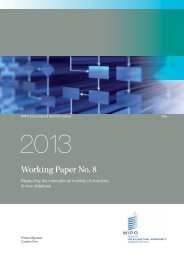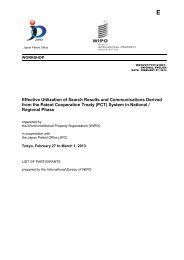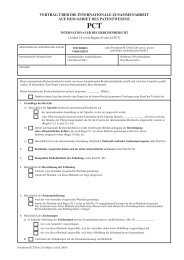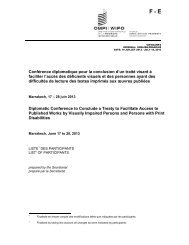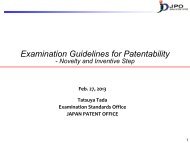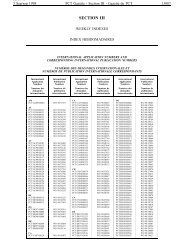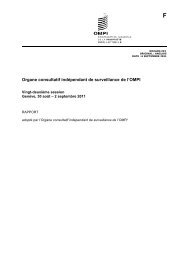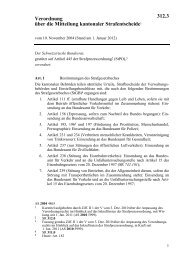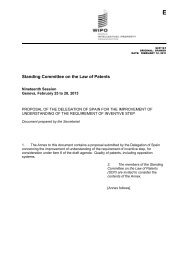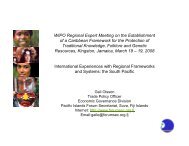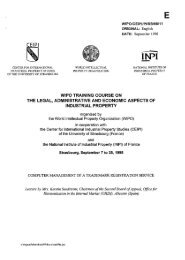WIPO-WTO COLLOQUIUM PAPERS
WIPO-WTO COLLOQUIUM PAPERS
WIPO-WTO COLLOQUIUM PAPERS
You also want an ePaper? Increase the reach of your titles
YUMPU automatically turns print PDFs into web optimized ePapers that Google loves.
DR. MANDEFRO ESHETE<br />
__________________________________________________________________________________<br />
the meaning of Article 10(1). Quotations could be made in different mediums, including books,<br />
booklets, articles, newspapers, speeches, lectures, sermons, broadcasts, and performances. As a result<br />
of the variety of ways available to make quotations, there are various rights which could be affected<br />
by such an exception. It is in light of this possibility that the Berne Convention uses the term 'making',<br />
which is a term with a broader meaning. Following the wording of Article 10 of the Ethiopian<br />
Copyright Law, it is only the reproduction right of copyright owners which is affected.<br />
Apart from the general requirement of fair practice and legitimate purpose, nothing has been<br />
regulated with regard to the size of quotations and the purposes for which they may be made.<br />
Works of an oral nature<br />
By virtue of Article 2(30)(b), and in conjunction with Article 6, Ethiopian Copyright Law has<br />
defined oral works as those falling within the meaning of the legislation. These include speeches,<br />
lectures, addresses, and sermons. The Copyright Law has defined the term 'works of an oral nature'<br />
broadly, so as to include political speeches and speeches delivered in the course of legal proceedings.<br />
The Copyright Law does not have a special provision which governs the manner in which<br />
limitations are imposed on 'works of an oral nature'. As a result, resort has to be made to the general<br />
exception clauses which apply to teaching, libraries, quotations, etc.<br />
The requirement of fixation<br />
Article 6 of the Ethiopian Copyright Law lays down the requirements for copyright<br />
protection. According to the first part of this provision, irrespective of the quality of the work and the<br />
purpose for which the work may have been created, the author is automatically entitled to protection<br />
upon creation, and without any formality. The implication of this is that a song that is sung out loud,<br />
or a speech that is delivered in public is immediately protected once they have been made. Authors do<br />
not need to fix their creation in any material form in order to attain legal protection.<br />
Unfortunately, the second part of the same provision introduces the fixation requirement in<br />
addition to originality. Accordingly, in order to enjoy protection, a work has to be original, and fixed.<br />
The requirement of originality, being a universal requirement for copyright protection, has been well<br />
received by a number of scholars in Ethiopia. The problem is with the requirement of fixation, which<br />
is new to Ethiopian Copyright Law. 9 The same law defines the term 'fixation' to mean the embodiment<br />
of works or images or sounds, or of the representation thereof from which they can be perceived,<br />
reproduced or communicated through a device prepared for the purpose. 10 The definition makes it<br />
possible for any storage medium to facilitate the fixation requirement.<br />
From the Ethiopian practice, at least from the perspective of the music industry, the fixation<br />
requirement has negatively affected the illiterate sections of society, and those creators who do not<br />
have access to modern technology.<br />
9<br />
The position of the Berne Convention in this regard is stipulated in Article 2(2). According to this<br />
provision, 'it shall, however, be a matter for legislation in the countries of the Union to prescribe that works in<br />
general or any specified categories of works shall not be protected unless they have been fixed in some material<br />
form'. In effect, this provision makes fixation optional.<br />
10<br />
Article 2(11) of the Ethiopian Copyright Law.<br />
32


